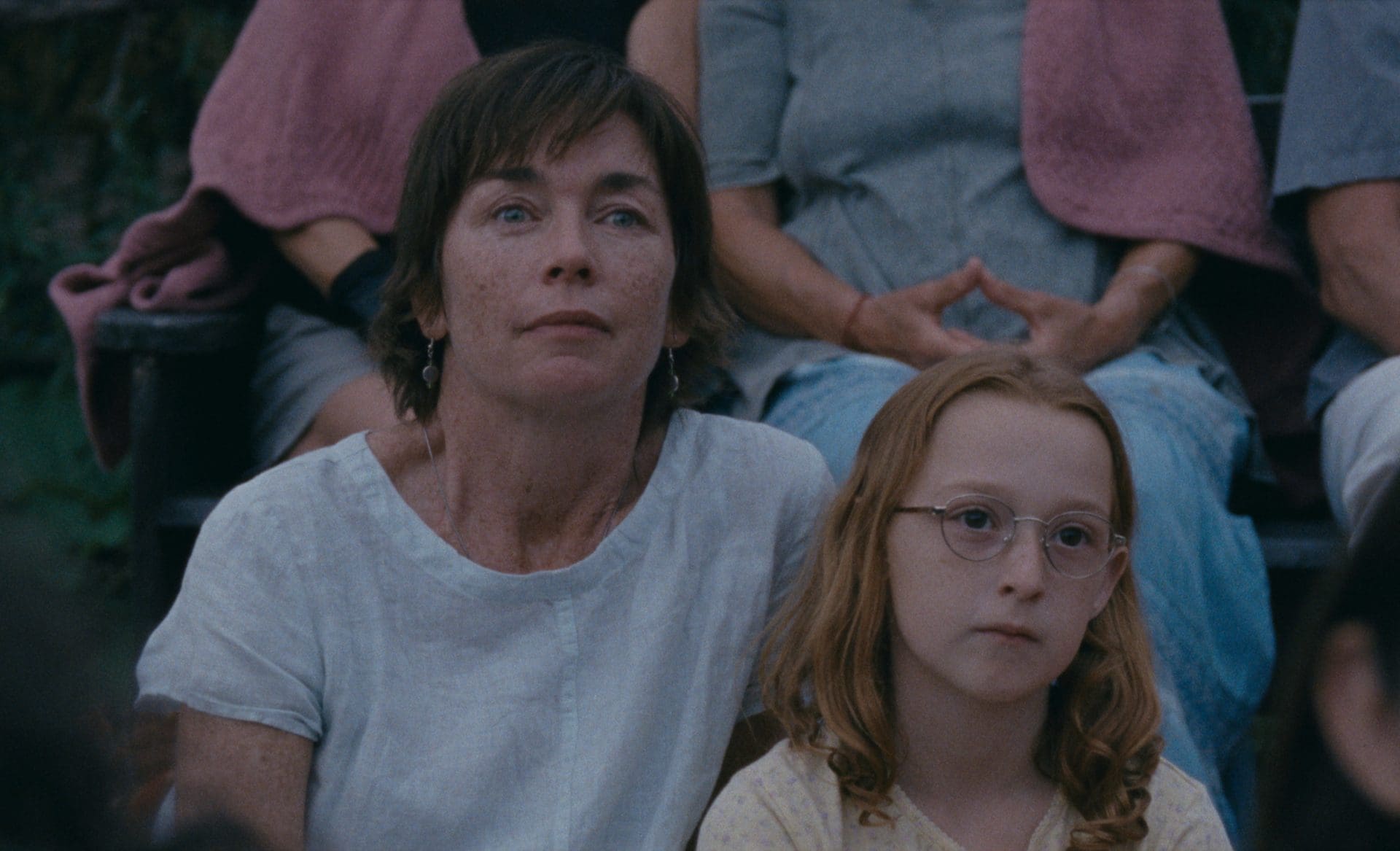
Acclaimed playwright Annie Baker makes makes an impressive debut as writer-director with this beautifully observed child’s-eye-view portrait of the relationship between a single mother and her eleven year old daughter. In interviews, Baker has described the film as being “about falling out of love with your mother”, and while it’s not quite as on-the-nose as that, it’s filled with quietly powerful moments that mark this out as a unique and distinctive coming-of-age film.
The film is set in rural Massachusetts over the summer of 1991, with the story divided into chapters named after the various adult figures that come in and out of the lives of acupuncturist single mother Janet (Julianne Nicholson) and her ginger, bird-like 11 year-old daughter Lacy (Zoe Ziegler). These include: boyfriend Wayne (Will Patton), who Lacy is none too fond of; Janet’s old friend Regina (Sophie Okenedo), who’s in a sort-of cult-like theatre collective; and theatre troupe leader Avi (Elias Koteas), who shows up to try and win back Regina, but ends up falling for Janet instead.
The film’s brilliant opening is practically a masterclass in the economy of character introduction. Marooned at summer camp, Lacy makes a phone call and casually announces, “I’m going to kill myself if you don’t come get me.” Janet duly shows up to collect her, but Lacy immediately regrets her decision, partly when she sees Wayne with Janet, but also because one of the other children at the camp is genuinely sad to see her go (she gives her a little Troll doll) and Lacy hadn’t realised anybody actually liked her.
Though it’s never explicitly stated, there are hints throughout the film that Lacy may be neurodiverse, since she’s constantly questioning, trying to understand and process emotion, rather than experiencing it. Janet, in turn, understands her daughter’s needs and repeatedly gives her open and honest answers to her questions.
This leads to the film’s best scene, a beautifully written sequence in which Janet and Lacy are lying in bed and Lacy asks, “Would you be disappointed if one day I dated a girl?” Janet’s answer prompts a moment of heart-breaking introspection, where she tells Lacy that although she knows she’s not beautiful, she’s always known she could make any man fall in love with her if she really tried, adding, “And I think it’s ruined my life.” There’s very little in the way of an actual plot, but Baker’s script is filled with similar subtle character moments, and the accumulative effect is powerfully moving.
The performances are exceptional. Young Zoe Ziegler makes an astonishing debut as Lacy, slowly navigating the world in her own way as she comes to understand her mother a little better. Similarly, it’s a treat to see Nicholson (who’s been consistently wonderful in a career spanning more than two decades) handed a lead role like this, and the bond she creates with her young co-star is a wonder to behold. There’s also terrific support from Okenedo, who lights up the screen whenever she appears, delivering a relaxed and charming turn filled with genuine warmth.
Aided by Swedish cinematographer Maria von Hausswolff, Baker shoots the film in a largely static style, using mostly naturalistic light and some impressive sound design, giving the film a palpable ambience of balmy summer days in Massachusetts. The camerawork also makes terrific use of close-ups, with some exquisite, thoughtful framing of the two leads’ beautiful faces.
To that end, Baker saves the film’s best moments for last, with a scene set during an evening of country dancing that—without giving anything away—perfectly encapsulates the entire movie and will leave you with a huge smile on your face. A perfect ending to a perceptive, fascinating and beautifully acted film.





